Faith and Reason Day: St. Joseph's Preparatory School
Toward a Relational Unity: Faith and Reason and the Catholic Classroom
Faith and Reason Day: St. Joseph's Preparatory School
Monday October 23, 2023
Registration
Schedule
Monday, October 23, 2023
| 8:00 - 8:45 a.m. | Mass |
| 8:45 - 9:30 a.m. | Breakfast |
| 9:30 - 9:45 a.m. | Welcome, Andrew Cavacos, Heather Foucault-Camm |
| 9:45 - 11:00 a.m. | Catholic Academic Integration, Christopher Baglow |
| 11:00 - 11:15 a.m. | Break |
| 11:15 a.m. to 12:30 p.m. | Breakout Session #1 |
| 12:30 to 1:15 p.m. | Lunch |
| 1:30 - 2:45 p.m. | Breakout Session #2 |
| 3:00 - 3:20 p.m. | Closing |
Breakout Sessions – Session 1
"Creation and Evoltion: Chance and Purpose"
Speaker: Dan Kuebler
For some, the scientific theory of evolution is seen as incompatible with a God who has knowingly and purposely fashioned us. However, if one examines the science of evolution properly, the theory can reveal the order inherent in creation. As Pope Benedict has stated, creation and evolution represent “two complementary—rather than mutually exclusive—realities.”
"The Four Hearts of a Sportsman"
Speaker: André Polaniecki
John Paul II was an accomplished sportsman, faithful follower of Christ, and patriotic son to his native Poland. The personal witness of Karol Wojtyła as philosophy student, priest, professor, writer, and bishop eventually led to his election as Pope John Paul II. Among his many accomplishments were over 100 discourses on sport throughout his pontificate, from brief comments to visiting sporting delegations to a beautiful homily during the mass for the Jubilee of Sport in 2000. According to John Paul II, sport was an arena where virtue formation and education could take place. This presentation explores the “four hearts” of John Paul II, the sportsman: a young heart, a coaching heart, a heart for others and a heart for Christ. His life and writings help to articulate sport as metaphorical, formational, evangelical or missionary, and redemptive.
"Why We Cannot Wait: What One Cell Can Teach Us About Racism, Literature, Theology, and Technology"
Speaker: Heather Foucault-Camm
The basis for the polio vaccine, significant innovations in chemotherapy, and understanding the link between certain viral illnesses and cancer represent some of the most significant medical advances of the 20th century. All of these advances share something in common - the HeLa cell. Yet, what many people do not know or choose not to see is that this something came from someone – Henrietta Lacks, a black woman who died in 1951 of an aggressive form of cervical cancer.
As a case study, Henrietta Lacks, and the cell line that survives her, confronts us all with a fundamental question – what does good science look like? The Catholic understanding of human dignity would suggest that science as a process should honor the dignity of each person and every person, always. Yet, this is not the reality experienced by all. This talk will seek to outline the story of Henrietta Lacks and present why, at a Catholic school, our synthetic approach to education, illuminated by the Gospel, provides classroom teachers with a very unique opportunity. For, it is in the privileged setting of the Catholic school that we are most free to be fully human and fully aware of a dignity that is equal in all, universal, and that transcends biology.
"The Galileo Affair"
Speaker: Cory Hayes
Beginning with Copernicus and ending with St. John Paul II, Dr. Cory Hayes will examine the trials of Galileo, the major players involved and the issues that were at play in his 1633 condemnation by the Inquisition for the sake of overcoming misconceptions and deepening our understanding of the lessons it has for us today.
Breakout Sessions – Session 2
"Faith and Mental Health"
Speaker: Elizabeth Hlabse
How are we to make sense of rising mental health concerns, particularly among our youth? By drawing on the wisdom of both faith and science, this workshop will consider how certain sociocultural and environmental factors present risk factors for mental health. Speaking practically to the Catholic school context, we’ll reflect on the unique challenges and opportunities for Catholic schools when it comes to renewing and sustaining a school environment that supports students’ integral wellbeing–mental, physical, relational, and spiritual. We’ll consider how Catholic teachers, administrators, counselors, and staff can work together to promote a school culture of Hope and belonging.
"Science and Faith: How and Why"
Speaker: Christopher Baglow
The assumption of inherent warfare between faith and science is an all-pervasive meme in contemporary American culture. In this opening talk, we will first distinguish them in terms of the questions they seek to answer and the way in which they engage our hearts and minds. Through the themes of paradox and mystery we will also see a surprising commonality that they share.
"The Galileo Affair"
Speaker: Cory Hayes
Beginning with Copernicus and ending with St. John Paul II, Dr. Cory Hayes will examine the trials of Galileo, the major players involved and the issues that were at play in his 1633 condemnation by the Inquisition for the sake of overcoming misconceptions and deepening our understanding of the lessons it has for us today.
"Fearful Symmetries"
Speaker: Stephen Barr
One of the main arguments for the existence of a Creator used by Christian thinkers since the time of the early Church is based on the order, harmony, beauty and lawfulness of the cosmos. How does this argument look today in the light of modern science? In this talk it will be shown that the discoveries of modern science, and in particular the physical sciences, have greatly strengthened this argument by showing how profound and rich the mathematical order of nature is.
Speakers
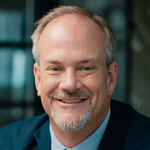
Chris Baglow, P.h.D., is Professor of the Practice in the Department of Theology at the University of Notre Dame and the Director of the Science and Religion Initiative of the McGrath Institute for Church Life, where he creates and directs programming that assists Catholic leaders in bringing the Catholic faith and modern science into dialogue for the sake of the New Evangelization. He has led programs of academic integration at two Catholic high schools, including the STREAM™ Program at St. Mary's Dominican H.S. in New Orleans, LA. In 2011-2014 Baglow directed the Templeton-funded Steno Learning Program in Faith and Science for Catholic Secondary Educators (SLP), a week-long seminar experience for Catholic science and religion teachers. Baglow is the author of Faith, Science and Reason: Theology on the Cutting Edge, 2nd ed. (Midwest Theological Forum, 2019). Professor Baglow is a member of the executive board of the Society of Catholic Scientists and serves as chair of its Theological Advisory Board.
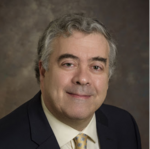
Stephen M. Barr, P.h.D., is President of the Society of Catholic Scientists and Professor Emeritus of theoretical particle physics at the University of Delaware. His research has centered mainly on “grand unified theories” and the cosmology of the early universe. In 2011, he was elected to be a Fellow of the American Physical Society “for his original contributions to grand unification, CP violation, and baryogenesis”. He writes and lectures extensively on the relation of science and religion. He is the author of Modern Physics and Ancient Faith (Univ. of Notre Dame Press, 2003) and The Believing Scientist: essays on science and religion (Eerdmans, 2016). Professor Barr was elected in 2010 to the Academy of Catholic Theology and was awarded the Benemerenti Medal by Pope Benedict XVI. He is the founder and president of the Board of Directors of the Society of Catholic Scientists.
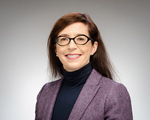
Heather Foucault-Camm, PGCE, M.Sc., M.A., is the Program Director for the Science and Religion Initiative at the McGrath Institute for Church Life, where she develops the pedagogical components of SRI programming, delivers presentations on content, and coordinates program events. A veteran science teacher and curriculum expert, she has a BSc and MSc in the field of Chemistry (specializing in Physical Chemistry), a PGCE, has completed the program for the National Certificate in Health Care Ethics from the NCBC, and is working towards an MA in Theology (Moral Theology) at the University of Notre Dame. Heather has created and implemented a high school course with a two-part focus on the Church’s historic relationship with science and bioethics as a practical contemporary example of this relationship. Heather wants to motivate teachers and students to consider how an authentic vision of the relationship between science and religion complements scientific progress aimed at truly improving the human condition.
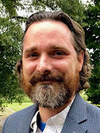
Cory Hayes, P.h.D., is a professor of Philosophy and Theology at St. Joseph Seminary College in Covington, LA. He holds a Ph.D. in Systematic Theology from Duquesne University in Pittsburgh, PA. His research and teaching interests include: Byzantine and Eastern Christian theology, Philosophy of Nature, and the relation between Catholic theology, philosophy, and empirical science. He and his wife Jennifer reside in Covington and they have 8 children.
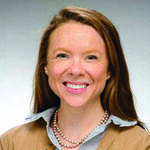
Beth Hlabse, M.S., LMHCA, is the program director for the Fiat Program on Faith and Mental Health at the McGrath Institute for Church Life, Beth leads the Institute’s efforts to generate pastoral research, education, and formation opportunities on mental health and the Catholic tradition. A mental health counselor, Beth has provided therapeutic care for adolescents and adults with histories of trauma and adverse child experiences. Her therapeutic approach is integrative, attending to neural-developmental influences and the intersection of spirituality and psychology. Beth obtained her masters in clinical mental health counseling from Divine Mercy University. Beth graduated from the University of Notre Dame with a BA in Theology and Peace Studies; she pursued postgraduate studies at the University of Oxford in Christian Ethics. Beth and her husband Pete treasure their community in South Bend, IN and delight in visits back to the great outdoors of Beth’s hometown in Wyoming.
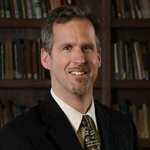
Dr. Dan Kuebler, P.h.D., is a Professor of Biology and Chair of the Biology Department at Franciscan University in Steubenville, Ohio where he teaches courses on evolution, cell physiology, and neurobiology, as well as maintaining an undergraduate research laboratory that investigates seizure disorders. He is the co-author of The Evolution Controversy: A Survey of Competing Theories (Baker Academic, 2007), a resource for cutting through the competing agendas to gain an unbiased understanding of the scientific issues involved in the debate surrounding evolution.
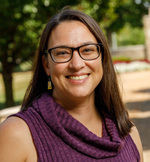
André Polaniecki, P.h.D., is an adjunct instructor and academic advisor at Holy Cross College. For the past several years, she has taught “Theology and Sports” in the Saints & Scholars Summer Theology Institute at Holy Cross. André also oversees compliance responsibilities for Holy Cross’s varsity sports as the faculty athletics representative. The Louisiana native was a student-athlete at Notre Dame and a high school religion teacher while living in New Orleans. She has a Master of Religious Education and recently defended her Leadership dissertation “The Sportsman’s Pope: John Paul II’s Writings on Sport.” André and her husband Andrew (who is the Dean of Students at Holy Cross College) reside in South Bend with their five children (Gabriel, David, Leo, Agnes and Matthew).